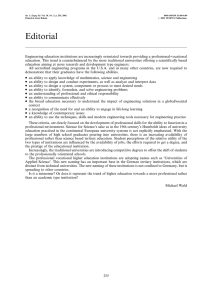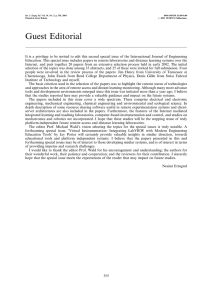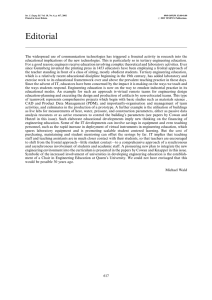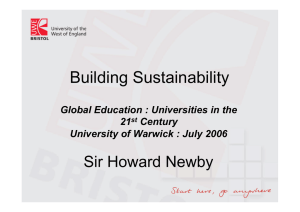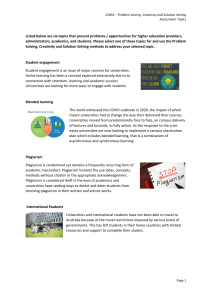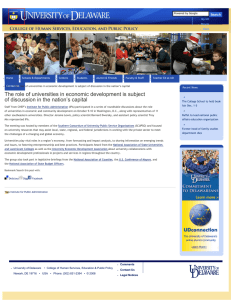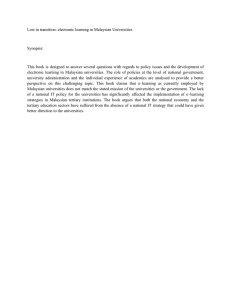Int. J. Engng Ed. Vol. 16, No. 6, p. 469,... 0949-149X/91 $3.00+0.00 Printed in Great Britain. # 2000 TEMPUS Publications.
advertisement
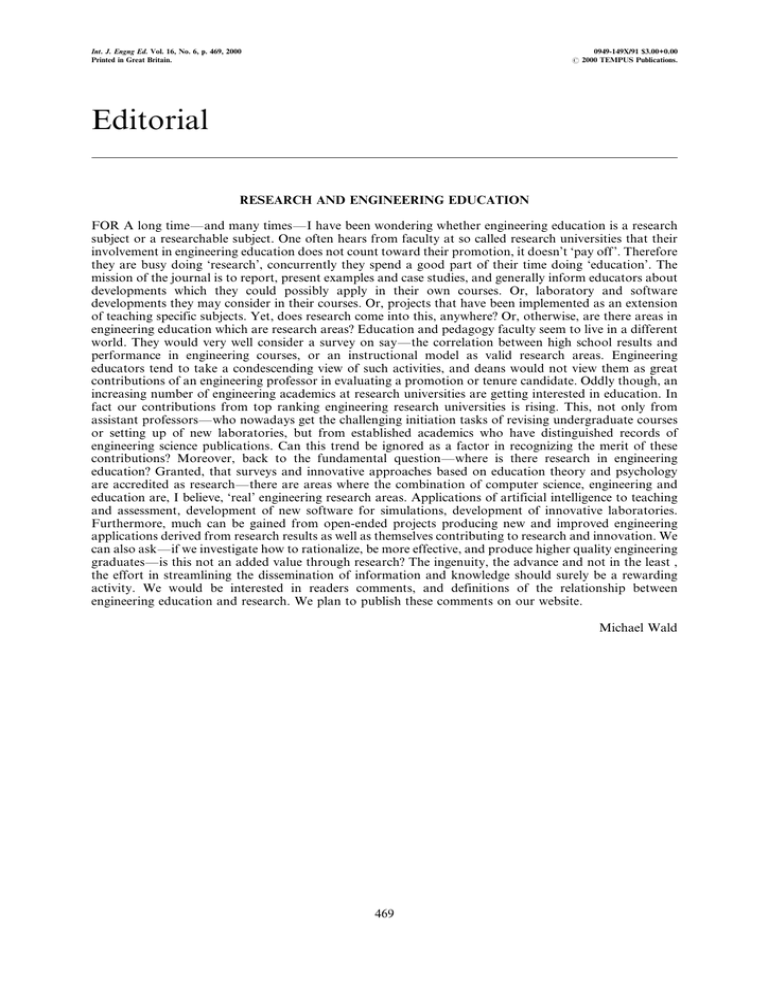
Int. J. Engng Ed. Vol. 16, No. 6, p. 469, 2000 Printed in Great Britain. 0949-149X/91 $3.00+0.00 # 2000 TEMPUS Publications. Editorial RESEARCH AND ENGINEERING EDUCATION FOR A long timeÐand many timesÐI have been wondering whether engineering education is a research subject or a researchable subject. One often hears from faculty at so called research universities that their involvement in engineering education does not count toward their promotion, it doesn't `pay off '. Therefore they are busy doing `research', concurrently they spend a good part of their time doing `education'. The mission of the journal is to report, present examples and case studies, and generally inform educators about developments which they could possibly apply in their own courses. Or, laboratory and software developments they may consider in their courses. Or, projects that have been implemented as an extension of teaching specific subjects. Yet, does research come into this, anywhere? Or, otherwise, are there areas in engineering education which are research areas? Education and pedagogy faculty seem to live in a different world. They would very well consider a survey on sayÐthe correlation between high school results and performance in engineering courses, or an instructional model as valid research areas. Engineering educators tend to take a condescending view of such activities, and deans would not view them as great contributions of an engineering professor in evaluating a promotion or tenure candidate. Oddly though, an increasing number of engineering academics at research universities are getting interested in education. In fact our contributions from top ranking engineering research universities is rising. This, not only from assistant professorsÐwho nowadays get the challenging initiation tasks of revising undergraduate courses or setting up of new laboratories, but from established academics who have distinguished records of engineering science publications. Can this trend be ignored as a factor in recognizing the merit of these contributions? Moreover, back to the fundamental questionÐwhere is there research in engineering education? Granted, that surveys and innovative approaches based on education theory and psychology are accredited as researchÐthere are areas where the combination of computer science, engineering and education are, I believe, `real' engineering research areas. Applications of artificial intelligence to teaching and assessment, development of new software for simulations, development of innovative laboratories. Furthermore, much can be gained from open-ended projects producing new and improved engineering applications derived from research results as well as themselves contributing to research and innovation. We can also askÐif we investigate how to rationalize, be more effective, and produce higher quality engineering graduatesÐis this not an added value through research? The ingenuity, the advance and not in the least , the effort in streamlining the dissemination of information and knowledge should surely be a rewarding activity. We would be interested in readers comments, and definitions of the relationship between engineering education and research. We plan to publish these comments on our website. Michael Wald 469
